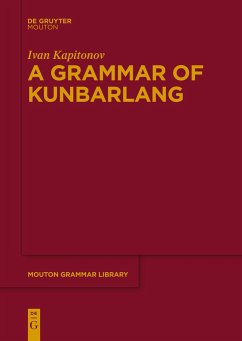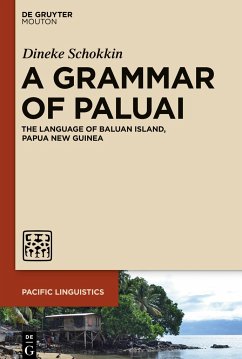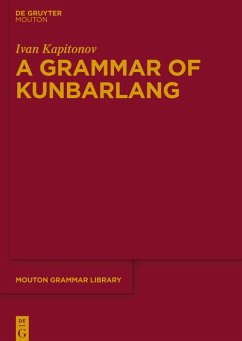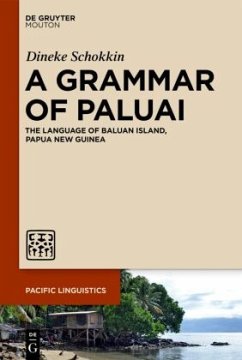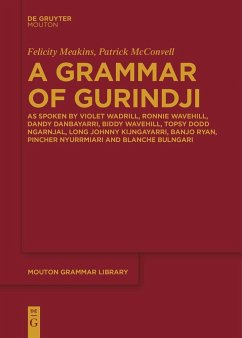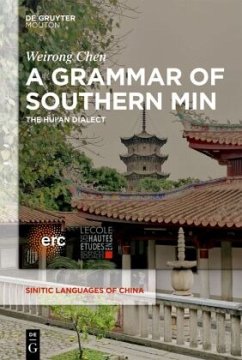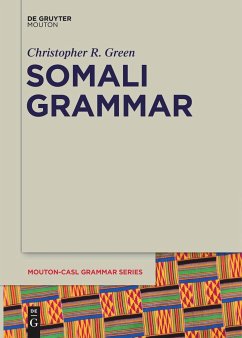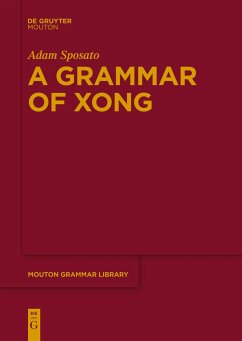Nicht lieferbar
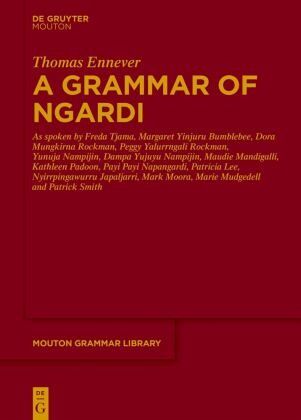
A Grammar of Ngardi
As spoken by F. Tjama, M. Yinjuru Bumblebee, D. Mungkirna Rockman, P. Yalurrngali Rockman, Y. Nampijin, D. Yujuyu Nampijin, M. Mandigalli, K. Padoon, P. P. Napangardi, P. Lee, N. Japaljarri, M. Moora, M.
Versandkostenfrei!
Nicht lieferbar
Ngardi is a highly endangered language with fewer than 10 remaining speakers and is no longer being acquired by children. Despite the limited circulation of a draft dictionary (Cataldi, 2011), there has been no published reference grammar of this language. Upon publication, this work will constitute the most comprehensive grammar of any Ngumpin-Yapa language.The Ngardi language exhibits many of the same typologically interesting features first identified in the related language Warlpiri-namely phenomena of non-configurational syntax and null anaphora. This grammar also brings to light a number...
Ngardi is a highly endangered language with fewer than 10 remaining speakers and is no longer being acquired by children. Despite the limited circulation of a draft dictionary (Cataldi, 2011), there has been no published reference grammar of this language. Upon publication, this work will constitute the most comprehensive grammar of any Ngumpin-Yapa language.
The Ngardi language exhibits many of the same typologically interesting features first identified in the related language Warlpiri-namely phenomena of non-configurational syntax and null anaphora. This grammar also brings to light a number of unique properties which will be of interest to linguistic typologists and formal theorists. The registration of arguments both through case marking on free NPs as well as in pronominal enclitics is similar to Warlpiri but differs in its detail-particularly in the ability to register various non-core cases (e.g. locative and allative) as 'arguments' in the pronominal complex. Within the verbal system, Ngardi is notably for a large number of verbal inflections (~20) which mark various distinctions in tense, aspect and mood, as well as associated motion and speaker-centric directionality. Ngardi exhibits a highly articulated system of complex predication, covering both complex verb and serial verb constructions. Other typologically interesting aspects of the language include the presence of dedicated apprehensional constructions and interesting interactions between negation and clausal modality.
The descriptive value of this grammar is enhanced by its sustained regional comparison of the linguistic features of Ngardi with those of neighbouring Ngumpin-Yapa and Western Desert languages. This grammar (and a forthcoming dictionary) of Ngardi will be of great significance to both those few remaining Ngardi speakers as well as the next generation of Ngardi people for whom accessible published materials will be an invaluable resource.
The Ngardi language exhibits many of the same typologically interesting features first identified in the related language Warlpiri-namely phenomena of non-configurational syntax and null anaphora. This grammar also brings to light a number of unique properties which will be of interest to linguistic typologists and formal theorists. The registration of arguments both through case marking on free NPs as well as in pronominal enclitics is similar to Warlpiri but differs in its detail-particularly in the ability to register various non-core cases (e.g. locative and allative) as 'arguments' in the pronominal complex. Within the verbal system, Ngardi is notably for a large number of verbal inflections (~20) which mark various distinctions in tense, aspect and mood, as well as associated motion and speaker-centric directionality. Ngardi exhibits a highly articulated system of complex predication, covering both complex verb and serial verb constructions. Other typologically interesting aspects of the language include the presence of dedicated apprehensional constructions and interesting interactions between negation and clausal modality.
The descriptive value of this grammar is enhanced by its sustained regional comparison of the linguistic features of Ngardi with those of neighbouring Ngumpin-Yapa and Western Desert languages. This grammar (and a forthcoming dictionary) of Ngardi will be of great significance to both those few remaining Ngardi speakers as well as the next generation of Ngardi people for whom accessible published materials will be an invaluable resource.





